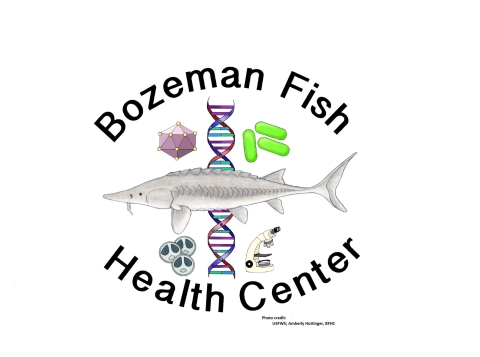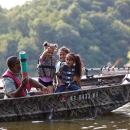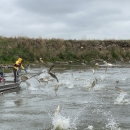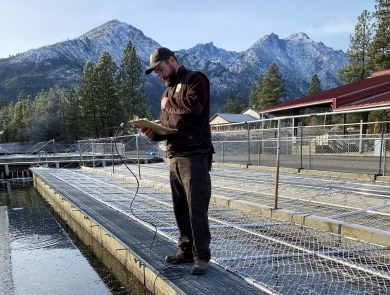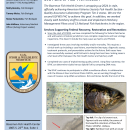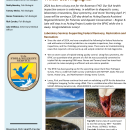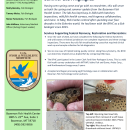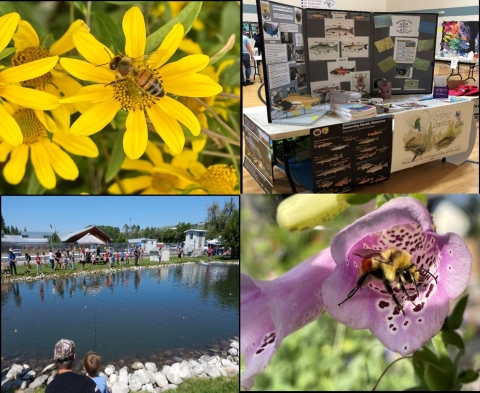About Us
Fish Health Centers operate as part of the Fish and Aquatic Conservation Program to provide aquatic animal health services and information that contribute to health, survival, restoration and enhancement of fish and other aquatic species in support of national and regional priorities. Centers collaborate with partners to provide diagnostics, monitoring, investigations, certifications and training related to free-ranging and cultured populations. Centers coordinate the Wild Fish Health Survey and address emerging pathogen concerns through applied research and innovative management strategies.
What We Do
The Center is comprised of multiple distinct laboratories that collaborate to ensure the health of hatchery-reared fish, monitor health in wild aquatic animal populations, including early detection and surveillance of aquatic invasive species invasive species
An invasive species is any plant or animal that has spread or been introduced into a new area where they are, or could, cause harm to the environment, economy, or human, animal, or plant health. Their unwelcome presence can destroy ecosystems and cost millions of dollars.
Learn more about invasive species , including New Zealand mudsnails, zebra mussels, and Invasive Carp.
Our Organization
Our Species
The Bozeman Fish Health Center and our partners work with many native and non-native species. Some are threatened or endangered species undergoing restoration efforts. Increasingly, species other than ‘typical’ aquaculture species require the Center’s attention as the Fish and Wildlife Service provides propagation capabilities to species such as Wyoming Toad, Pallid Sturgeon, and endangered mussels. New species may encounter many of the same issues associated with disease outbreaks when introduced to a culture environment: higher densities than encountered in the wild, closed environments, and stress from the presence of, and handling by, people. Our responsibilities under the endangered species Act include conserving declining species before listing is necessary, working to recover listed species and cooperating with partners and other Federal Agencies to conserve endangered species.
Visit Us
Welcome to the Bozeman Fish Health Center –located in the Heart of Big Sky Country in Bozeman, MT. Located just west of Montana State University campus in 5,431 square feet of research, laboratory and office space.
Our Library
Our newsletters provide brief descriptions of the work that we have been performing around the region.
Get Involved
Outreach and ways to get involved
The Bozeman Fish Health Center staff are active in supporting and participating in activities and events for community groups, schools and other conservation agencies. Our staff makes visits to schools and groups, participates in career fairs, fishing derbies, pollinator events, sports shows, and other events in order to share their knowledge and passion for Aquatic and natural resources with the community.



